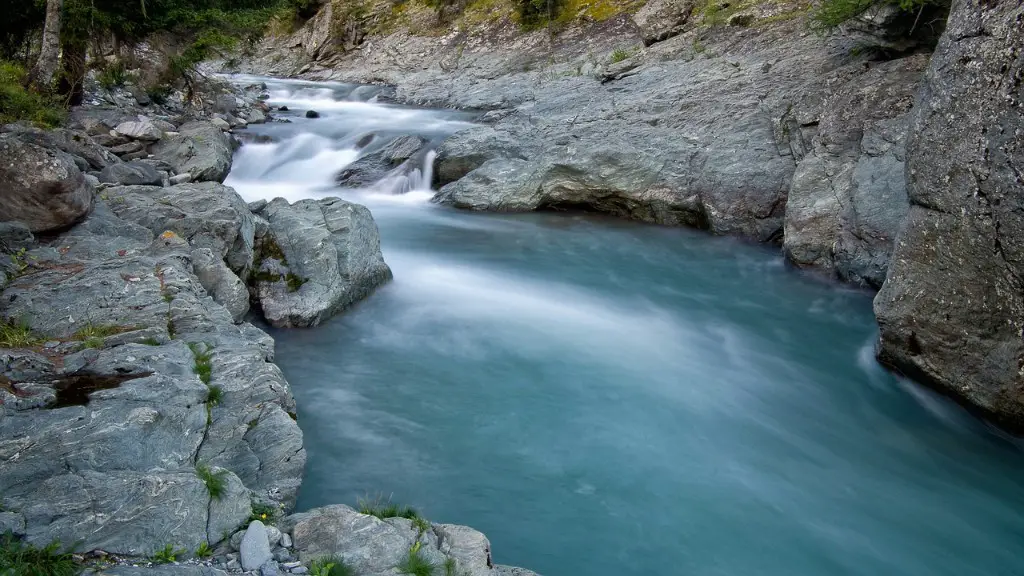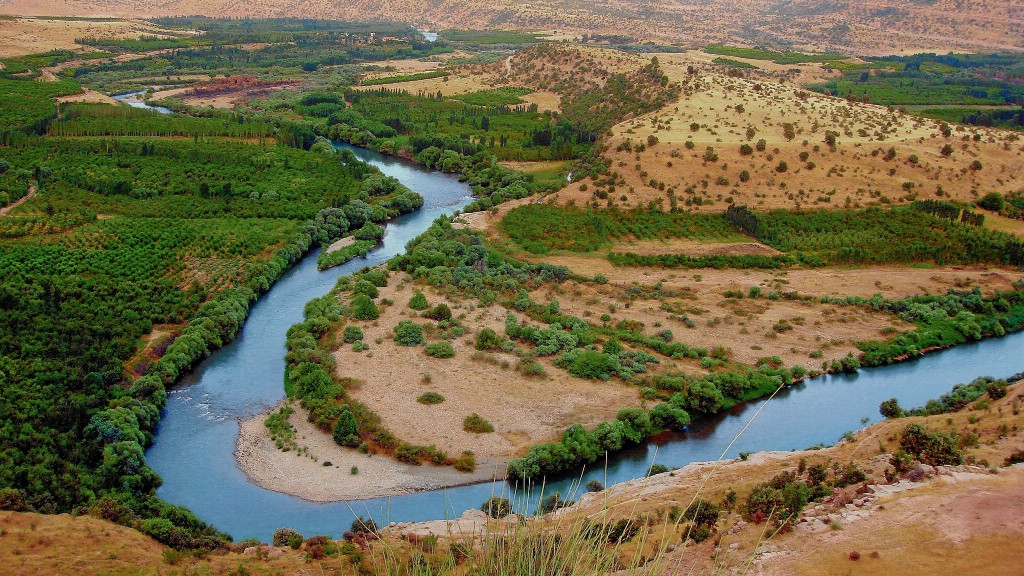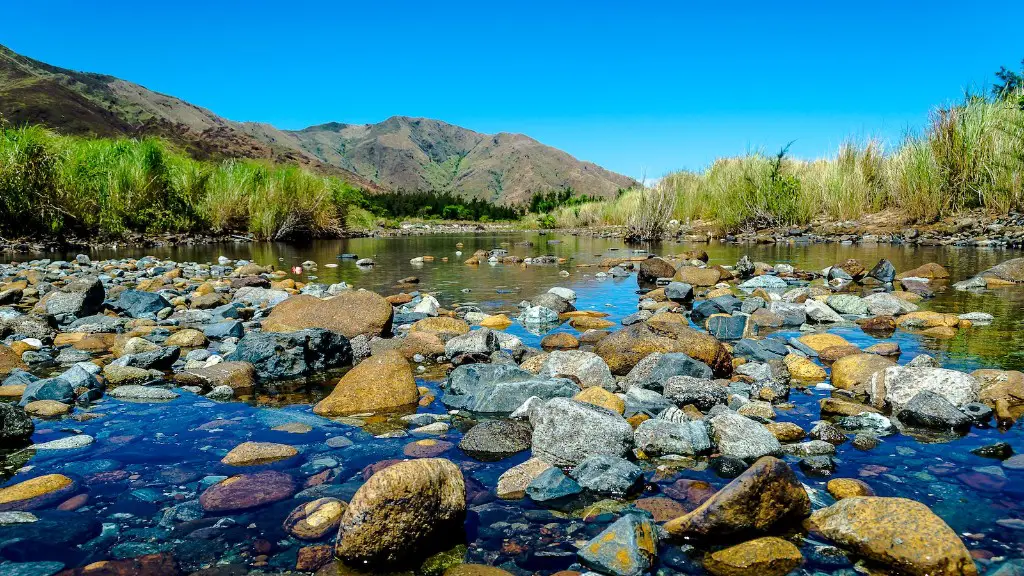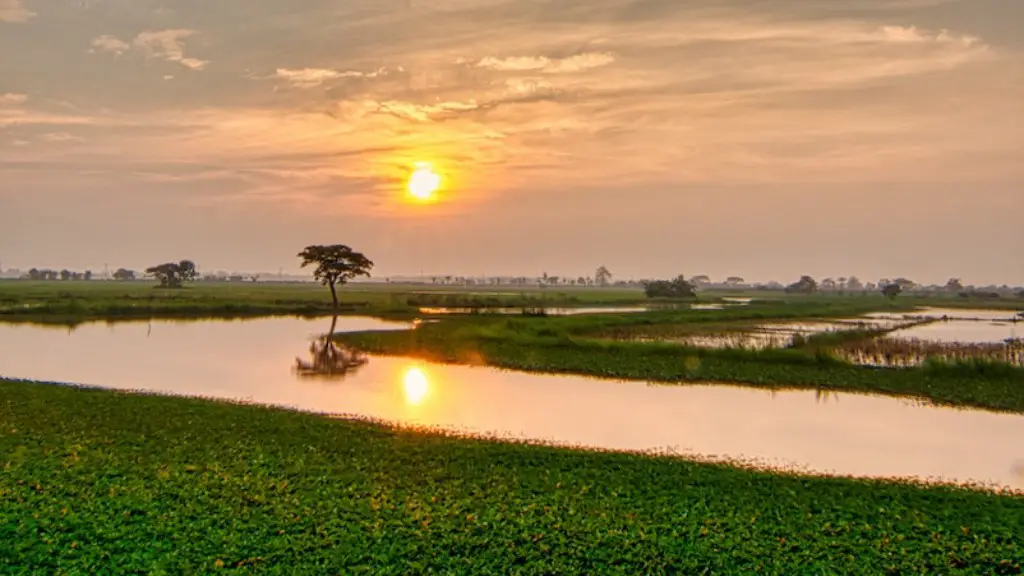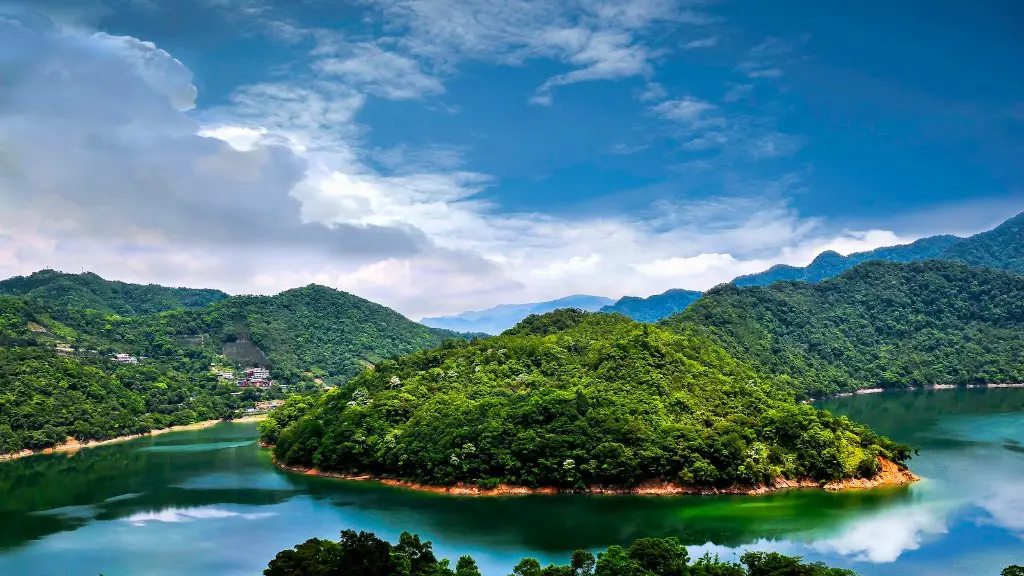The Mississippi River is one of the most iconic rivers in the world and arguably the most important commercial waterway in North America. For centuries humans have cultivated the agricultural and industrial infrastructure along the river. But what if the river changes course and erases this history?
The potential danger of the Mississippi River changing course has become more serious in recent decades due to climate change. Some experts predict that the river could eventually redirect. The changing course of the Mississippi River can cause devastating environmental and social impacts.
As the temperature increases and precipitation levels fluctuate, the water level of the Mississippi River rises and falls. The river is already exposed to riverbed erosion, but if it changes course, the erosion could be more dramatic. As floods and droughts become more frequent, the erosion could severely damage the existing streambeds and agricultural products that are grown in those areas.
In addition to the physical destruction, the change in the course of the river could also have a significant economic impact. Millions of dollars are annually lost due to erosion, sedimentation, and flooding from the Mississippi River. Further, because transportation on the river is a major source of revenue for the region, the changing course of the river could result in a decline in business for those who rely on it.
The consequences of the Mississippi River changing course will also largely be determined by the nature of the new channels that are created. River scientists believe that the new channels will likely be smaller and will have different patterns of sediment deposition, which could interfere with navigation and cause diminished water quality. These changes could have a ripple effect on businesses, especially shipping companies.
Above all, a change in the course of the Mississippi River is sure to have a significant impact on the people and animals who call it home. Since millions of people rely on the river for their livelihoods and for agriculture and fishing, the change could result in decreased incomes and fewer resources.
Overall, it is uncertain what will happen if the Mississippi River changes course. As the region faces new realities of climate change, scientists, policy makers, and citizens alike must think critically about what the future of this riverscape will be.
Economic and Social Change
There will be deep economic and social consequences if the Mississippi River changes course. Inundation and damages from floods may block off transportation routes and cause serious environmental damage, leading to job losses and loss of income. The local industries like agriculture, fisheries and shipping will have to find other ways to sustain themselves as the river changes.
The economic and social consequences will also be felt by other industries. Since the Mississippi River courses along states like Louisiana and Mississippi, it is an important source of income for these states and the people who inhabit them. If the river changes course, it could mean less tourist money and fewer jobs, leading to a decline in the standard of living.
Finally, a change in the course of the Mississippi River is sure to have a large impact on the natural environment and animal habitat. Wildlife that depend on the river and its tributaries may suffer from the effects of the changing course of the river, leading to changes in species populations. In addition, the larger ecosystems of the Mississippi may be affected, leading to wider impacts on the region.
Environmental Impacts
A change in the course of the Mississippi River would likely have major environmental impacts as well. Land erosion and sedimentation would be two of the biggest environmental worries if the river changed course. This erosion and sedimentation could lead to a decreased water quality due to a buildup of pollutants that are carried by the river, as well as degradation of wetlands and other sensitive habitats.
The loss of wetlands could be especially harmful to local wildlife and plant life, as these areas are important resting and feeding grounds for many species. As the Mississippi River changes, so too would the diversity of the ecosystems that rely on it. These changes could lead to a decrease in species richness and abundance, as well as a disruption of the food web.
Finally, the changing course of the river could have an effect on the chemical and nutrient cycles in the region. The river, as it has been in the past, serves as a transport for nutrients, minerals and chemicals that are essential for the growth of plants and animals. When the river changes, these chemical and nutrient cycles may be disrupted, leading to an ecological imbalance.
Change Prevention
Changes in the course of the Mississippi River are not totally preventable, but there are steps that can be taken to mitigate the potential impacts. One of the most important things to do is to ensure that the river banks are maintained to prevent erosion. People should also limit their activities in the river, like boating, to reduce the stress on its ecosystem.
In addition, more investment should be put into flood prevention and water management systems to prevent water levels from rising too high. This is especially important in areas near the river, as a sudden surge of flood water could wreak havoc on the land.
Another way to prevent changes in the course of the Mississippi is through land-use policies. It is important that new development and urban sprawl is planned carefully to ensure that land is not drained of water or over-farmed.
Finally, people should ensure that the river is kept clean and free of pollutants that can contaminate the water. Pollutants such as fertilizers, detergents and other chemicals can all cause environmental damage if they enter the river, as well as contribute to soil erosion and sedimentation.
Economic Sustainability
The economy along the Mississippi river will have to adjust to any changes in the course of the river. Economic sustainability is key as businesses connected to the river face the risk of losing customers and revenue. Solutions to maintain economic sustainability include diversifying the local economy, helping struggling businesses adjust to the new conditions, and finding new sources of revenue.
It is also important to recognize that there may be potential changes in the demand for products from the area, as the changing environment may require new products or services. Additionally, measures should be taken to help businesses access loans and other forms of financial support. This can be done through local and state governments, as well as private organizations and banks.
Finally, investments should be made in green infrastructure in order to preserve the environment and help businesses become more efficient and reduce their carbon footprint. Such measures include the installation of solar panels, energy-efficient lighting and water reuse systems, as well as incentives for businesses to become more sustainable.
Adaptive Measures
In order to cope with any changes in the course of the Mississippi River, we must also invest in adaptive measures that are designed to help communities, businesses and individuals adjust. Adaptive measures may include improved flood management systems, new evacuation plans, and stronger levees. Investments in education and public awareness are also important, as citizens must understand the risks of the changing river and how to take measures to protect themselves.
Adaptive measures also include investments in infrastructure, such as bridges, dams and levees, that are designed to protect communities from flooding, and to maintain the safety of transportation on the river. Such measures should also be combined with better soil and water conservation practices, as well as improved water management systems.
Finally, we must also invest in technology to help monitor and predict the changes in the river. Access to accurate real-time data from sensors along the river and its tributaries can help us better understand the impacts of the changing river and the potential damage that it could cause.
The Future of the Mississippi
The future of the Mississippi River is dependent on how the region responds to the risks of climate change. It is essential that policy makers, scientists, and citizens understand the potential impacts of the changing river and take steps to protect the region. Investments should be made in flood prevention, clean energy, and more sustainable business practices to ensure that the region is resilient and can recover from any potential changes.
It is also important to recognize that the Mississippi River is essential for the economy, environment, and culture of the region. Continued investment in adaptive infrastructure, innovative technologies and educational programs are essential for the region to successfully navigate the future changes.
Ultimately, the future of the Mississippi River and its residents depend on how its region responds to changing environmental and social conditions. With thoughtful preparation, it is possible to adopt strategies to ensure the river courses along its present course for many years to come.

